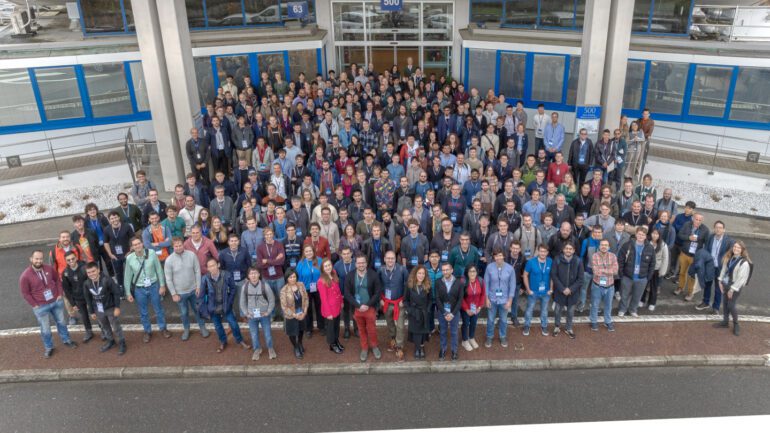TL;DR:
- Quantum methodologies are accelerating problem-solving, replacing classical computers.
- Collaboration between physicists and computer scientists explores this potential.
- The 7th International Conference on Quantum Techniques in Machine Learning (QTML) at CERN gathered 300+ experts.
- Quantum techniques in machine learning reduce algorithmic steps for accurate results.
- CERN leads in quantum tech through the Quantum Technology Initiative and Open Quantum Institute.
- Major industry players like ESA, Google, IBM, Intel, IONQ, NASA, and PASQAL showcased their developments.
- Applications range from optimizing aircraft cargo loading to battery chemistry research.
- Continuous industry-academia interaction drives the quantum revolution.
- The conference fostered an inclusive environment by eliminating parallel sessions.
- The 8th edition of QTML is scheduled for 2024 at the University of Melbourne.
Main AI News:
In the quest for faster problem-solving capabilities, the fusion of quantum methodologies with classical computing has emerged as a game-changer. Collaborative efforts between physicists and computer scientists are paving the way for a future where quantum techniques revolutionize machine learning. The recent 7th International Conference on Quantum Techniques in Machine Learning (QTML), held at CERN in November, exemplified this synergy, drawing over 300 leading researchers and industry pioneers to delve into the limitless possibilities of this groundbreaking convergence.
Machine learning, a field harnessing data and algorithms to empower computers to discern patterns and enhance performance across diverse domains, has been reinvigorated by the integration of quantum physics principles. This harmonious fusion promises to streamline the algorithms’ path to correct answers, significantly reducing computation time.
Alberto di Meglio, Head of the Innovation section in CERN’s IT department, underscored CERN’s unwavering commitment to advancing quantum technology during his inaugural address. CERN’s Quantum Technology Initiative and the Open Quantum Institute are at the forefront of this endeavor. The conference featured enlightening presentations from esteemed entities such as ESA, Google, IBM, Intel, IONQ, NASA, and PASQAL, all of whom showcased their latest breakthroughs. These innovations spanned from optimizing aircraft cargo loading to pioneering new algorithms for the study of lithium compounds and their chemical reactions in battery chemistry. Michele Grossi, Senior Fellow in quantum computing and algorithms at CERN, emphasized the pivotal role played by major industry partners in propelling the quantum revolution, fostering a symbiotic relationship between industry and academia.
In a departure from conventional conference structures, QTML 2023 adopted a singular approach, eliminating parallel sessions that often divide participants. This format facilitated dynamic interactions among attendees from diverse backgrounds and disciplines. Miguel Marquina, Senior Staff Member in CERN’s IT department, extolled the power of this engaging environment, where more than 300 individuals converged daily to explore a singular theme.
Looking ahead, the 8th edition of the International Conference on Quantum Techniques in Machine Learning is scheduled for 2024 at the University of Melbourne, promising to be another milestone in this transformative journey. For further information, please visit the QTML 2023 and QTI websites, where the future of machine learning and quantum technology convergence awaits exploration.
Conclusion:
The synergy between quantum techniques and machine learning showcased at CERN’s QTML conference signifies a transformative leap in problem-solving efficiency. The active involvement of major industry players underscores the market’s commitment to driving innovation and collaboration in this quantum-powered era, paving the way for significant advancements across various sectors.

